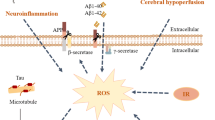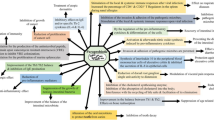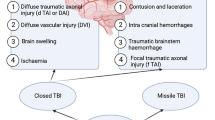Abstract
Traumatic brain injuries (TBI) manifest into post-traumatic stress disorders such as anxiety comorbid with gut ailments. The perturbations in gut microbial communities are often linked to intestinal and neuropsychological disorders. We have previously reported anxiety and abnormalities in gut function in mild TBI (MTBI)-exposed rats. The current study demonstrates the changes in gut microbiome of MTBI-exposed animals and discusses its implications in intestinal health and behaviours. The rats were subjected to repeated MTBI (rMTBI) and microbial composition in jejunum was examined after 6 h, 48 h and 30 days of rMTBI. Significant reduction in bacterial diversity was observed in the rMTBI-exposed animals at all the time points. Principal coordinate analysis based on weighted UniFrac distances indicated substantial differences in gut microbial diversity and abundances in rMTBI-exposed animals as compared to that in healthy controls. The abundance of Proteobacteria increased dramatically with reciprocal decrease in Firmicutes after rMTBI. At the genus level, Helicobacter, Lactobacillus, Campylobacter, and Streptococcus were found to be differentially abundant in the jejunum of rMTBI-exposed rats as compared to sham controls indicating profound dysbiosis from the healthy state. Furthermore, substantial depletion in butyrate-producing bacterial communities was observed in rMTBI-exposed animals. These results suggest that the traumatic stress alters the gut microbiome with possible implications in gut health and neuropsychopathology.








Similar content being viewed by others
References
Andersson AF, Lindberg M, Jakobsson H, Bäckhed F, Nyrén P and Engstrand L 2008 Comparative analysis of human gut microbiota by barcoded pyrosequencing. PloS One 3 e2836
Andrews S 2010 FastQC: a quality control tool for high throughput sequence data. http://www.bioinformatics.babraham.ac.uk/projects/fastqc/. Accessed 28 Nov 2017
Ayres JS, Trinidad NJ and Vance RE 2012 Lethal inflammasome activation by a multidrug-resistant pathobiont upon antibiotic disruption of the microbiota. Nat. Med. 18 799–806
Bäckhed F, Fraser CM, Ringel Y, Sanders ME, Sartor RB, Sherman PM, Versalovic J, Young V and Finlay BB 2012 Defining a healthy human gut microbiome: current concepts, future directions, and clinical applications. Cell Host Microbe 12 611–622
Bansal V, Costantini T, Kroll L, Peterson C, Loomis W, Eliceiri B, Baird A, Wolf P and Coimbra R 2009 Traumatic brain injury and intestinal dysfunction: uncovering the neuro-enteric axis. J. Neurotrauma 26 1353–1359
Barcenilla A, Pryde SE, Martin JC, Duncan SH, Stewart CS, Henderson C and Flint HJ 2000 Phylogenetic relationships of butyrate-producing bacteria from the human gut. Appl. Environ. Microbiol. 66 1654–1661
Bartels LE, Jepsen P, Christensen LA, Gerdes LU, Vilstrup H and Dahlerup JF 2015 Diagnosis of Helicobacter pylori infection is associated with lower prevalence and subsequent incidence of Crohn’s disease. J. Crohns Colitis 10 443–448
Bercik P, Verdu EF, Foster JA, Macri J, Potter M, Huang X, Malinowski P, Jackson W, Blennerhassett P, Neufeld KA and Lu J 2010 Chronic gastrointestinal inflammation induces anxiety-like behavior and alters central nervous system biochemistry in mice. Gastroenterology 139 2102–2112
Bourassa MW, Alim I, Bultman SJ and Ratan RR 2016 Butyrate, neuroepigenetics and the gut microbiome: can a high fiber diet improve brain health? Neurosci. Lett. 625 56–63
Bull MJ and Plummer NT 2014 Part 1: The Human Gut Microbiome in Health and Disease. Integr. Med. (Encinitas) 13 17–22
Caporaso JG, Kuczynski J, Stombaugh J, Bittinger K, Bushman FD, Costello EK, Fierer N, Pena AG, Goodrich JK, Gordon JI and Huttley GA 2010 QIIME allows analysis of high-throughput community sequencing data. Nat. Methods 7 335
Carabotti M, Scirocco A, Maselli MA and Severi C 2015 The gut–brain axis: interactions between enteric microbiota, central and enteric nervous systems. Ann. Gastroenterol. 28 203
Cenit MC, Sanz Y and Codoñer-Franch P 2017 Influence of gut microbiota on neuropsychiatric disorders. World J. Gastroenterol. 23 5486
Chen GH, Wu DP, Sun AN, Yang MZ, Wang Y, Tang XW, Chang HR, Feng YF and Zhu ZL 2008 Experimental study on IL-2-and IL-15 application in allogeneic hematopoietic stem cell transplantation. Zhonghua Xue Ye Xue Za Zhi 29 526–530
Clarke G, Grenham S, Scully P, Fitzgerald P, Moloney RD, Shanahan F, Dinan TG and Cryan JF 2013 The microbiome–gut–brain axis during early life regulates the hippocampal serotonergic system in a sex-dependent manner. Mol. Psychiatry 18 666
Comeau AM, Douglas GM and Langille MGI 2017 Microbiome Helper: a Custom and Streamlined Workflow for Microbiome Research. MSystems 2 1–11
Cryan JF and Dinan TG 2012 Mind-altering microorganisms: the impact of the gut microbiota on brain and behaviour. Nat. Rev. Neurosci. 13 701
DeSantis TZ, Hugenholtz P, Larsen N, Rojas M, Brodie EL, Keller K, Huber T, Dalevi D, Hu P and Andersen GL 2006 Greengenes, a chimera-checked 16S rRNA gene database and workbench compatible with ARB. Appl. Environ. Microbiol. 72 5069–5072
Dinan TG and Cryan JF 2017 Brain-gut-microbiota axis—Mood, metabolism and behavior. Nat. Rev. Gastroenterol. Hepatol. 14 69–70
Drossman DA 2011 Abuse, trauma, and GI illness: Is there a link and quest. Am. J. Gastroenterol. 106 14–25.
Dupont AW and Dupont HL 2011 The intestinal microbiota and chronic disorders of the gut. Nat. Rev. Gastroenterol. Hepatol. 8 523–531
Esquivel-Elizondo S, Ilhan ZE, García-Peña EI and Krajmalnik-Brown R 2017 Insights into butyrate production in a controlled fermentation system via gene predictions. mSystems 2 e00051–17
Evrensel A and Ceylan ME 2015 The gut–brain axis: the missing link in depression. Clin. Psychopharmacol. Neurosci. 13 239–244
Furusawa Y, Obata Y, Fukuda S, Endo TA, Nakato G, Takahashi D, Nakanishi Y, Uetake C, Kato K, Kato T and Takahashi M 2013 Commensal microbe-derived butyrate induces the differentiation of colonic regulatory T cells. Nature 504 446
Grochowska M, Wojnar M and Radkowski M 2018 The gut microbiota in neuropsychiatric disorders. Acta Neurobiol. Exp. 78 69–81
Hang CH, Shi JX, Li JS, Wu W and Yin HX 2003 Alterations of intestinal mucosa structure and barrier function following traumatic brain injury in rats. World J. Gastroenterol. 9 2776
Heijtz RD, Wang S, Anuar F, Qian Y, Björkholm B, Samuelsson A, Hibberd ML, Forssberg H and Pettersson S 2011 Normal gut microbiota modulates brain development and behavior. Proc. Natl. Acad. Sci. USA 108 3047–3052
Houlden A, Goldrick M, Brough D, Vizi ES, Lénárt N, Martinecz B, Roberts IS and Denes A 2016 Brain injury induces specific changes in the caecal microbiota of mice via altered autonomic activity and mucoprotein production. Brain Behav. Immun. 57 10–20
Howard BM, Kornblith LZ, Christie SA, Conroy AS, Nelson MF, Campion EM, Callcut RA, Calfee CS, Lamere BJ, Fadrosh DW and Lynch S 2017 Characterizing the gut microbiome in trauma: significant changes in microbial diversity occur early after severe injury. J. Trauma Acute Care 2 e000108
Hsiao EY, McBride SW, Hsien S, Sharon G, Hyde ER, McCue T, Codelli JA, Chow J, Reisman SE, Petrosino JF and Patterson PH 2013 Microbiota modulate behavioral and physiological abnormalities associated with neurodevelopmental disorders. Cell 155 1451–1463
Jandhyala SM, Talukdar R, Subramanyam C, Vuyyuru H, Sasikala M and Reddy DN 2015 Role of the normal gut microbiota. World J. Gastroenterol. 21 8787
Kang DW, Park JG, Ilhan ZE, Wallstrom G, LaBaer J, Adams JB and Krajmalnik-Brown R 2013 Reduced incidence of Prevotella and other fermenters in intestinal microflora of autistic children. PloS One 8 e68322
Kao CH, ChangLai SP, Chieng PU and Yen TC 1998 Gastric emptying in head-injured patients. Am. J. Gastroenterol. 93 1108
Karr JE, Areshenkoff CN and Garcia-Barrera MA 2014 The neuropsychological outcomes of concussion: a systematic review of meta-analyses on the cognitive sequelae of mild traumatic brain injury. Neuropsychology 28 321–336
Kharrazian D 2015 Traumatic Brain Injury and the Effect on the Brain-Gut Axis. Altern. Ther. Health Med. 21 28–32
Kopylova E, Navas-Molina JA, Mercier C, Xu ZZ, Mahé F, He Y, Zhou HW, Rognes T, Caporaso JG and Knight R 2016 Open-source sequence clustering methods improve the state of the art. Msystems 1 e00003–15
Le Chatelier E, Nielsen T, Qin J, Prifti E, Hildebrand F, Falony G, Almeida M, Arumugam M, Batto JM, Kennedy S and Leonard P 2013 Richness of human gut microbiome correlates with metabolic markers. Nature 500 541
Li M, Zhao Z, Yu G and Zhang J 2016 Epidemiology of Traumatic Brain Injury over the World: A Systematic Review. Austin Neurol. Neurosci. 1 1007
Li H, Sun J, Du J, Wang F, Fang R, Yu C, Xiong J, Chen W, Lu Z and Liu J 2018 Clostridium butyricum exerts a neuroprotective effect in a mouse model of traumatic brain injury via the gut–brain axis. Neurogastroenterol Motil. 30 e13260
Logsdon AF, Erickson MA, Rhea EM, Salameh TS and Banks WA 2018 Gut reactions: How the blood-brain barrier connects the microbiome and the brain. Exp. Biol. Med. (Maywood) 243 159–165
Lozupone C, Lladser ME, Knights D, Stombaugh J and Knight R 2011 UniFrac: An effective distance metric for microbial community comparison. ISME J. 5 169–172
Man SM, Zhang L, Day AS, Leach ST, Lemberg DA and Mitchell H 2009 Campylobacter concisus and other Campylobacter species in children with newly diagnosed Crohn’s disease. Inflamm. Bowel Dis. 16 1008–1016
Martin M 2011 Cutadapt removes adapter sequences from high-throughput sequencing reads. EMBnet J. 17 10
Mayer EA 2000 The neurobiology of stress and gastrointestinal disease. Gut 47 861–869.
Mayer EA, Tillisch K and Gupta A 2015 Gut/brain axis and the microbiota. J. Clin. Invest. 125 926–938
McInnes K, Friesen CL, MacKenzie DE, Westwood DA and Boe SG 2017 Mild Traumatic Brain Injury (mTBI) and chronic cognitive impairment: A scoping review. PLoS One 12 e0174847
Messaoudi M, Lalonde R, Violle N, Javelot H, Desor D, Nejdi A, Bisson JF, Rougeot C, Pichelin M, Cazaubiel M and Cazaubiel JM 2011 Assessment of psychotropic-like properties of a probiotic formulation (Lactobacillus helveticus R0052 and Bifidobacterium longum R0175) in rats and human subjects. Br. J. Nutr. 105 755–764
Meyer DL, Davies DR, Barr JL, Manzerra P and Forster GL 2012 Mild traumatic brain injury in the rat alters neuronal number in the limbic system and increases conditioned fear and anxiety-like behaviors. Exp. Neurol. 235 574–587
Mychasiuk R, Farran A, Angoa-Perez M, Briggs D, Kuhn D and Esser MJ 2014 A novel model of mild traumatic brain injury for juvenile rats. J. Vis. Exp. 94 e51820
Neufeld KM, Kang N, Bienenstock J and Foster JA 2010 Reduced anxiety-like behavior and central neurochemical change in germ-free mice. Neurogastroenterol. Motil. 23 255–264
Nicholson SE, Watts LT, Burmeister DM, Merrill D, Scroggins S, Zou Y, Lai Z, Grandhi R, et al. 2018 Moderate traumatic brain injury alters the gastrointestinal microbiome in a time-dependent manner. Shock https://doi.org/10.1097/shk.0000000000001211
Nishino R, Mikami K, Takahashi H, Tomonaga S, Furuse M, Hiramoto T, Aiba Y, Koga Y and Sudo N 2013 Commensal microbiota modulate murine behaviors in a strictly contamination-free environment confirmed by culture-based methods. Neurogastroenterol. Motil. 25 521–528
Olsen AB, Hetz RA, Xue H, Aroom KR, Bhattarai D, Johnson E, Bedi S, Cox Jr CS and Uray K 2013 Effects of traumatic brain injury on intestinal contractility. Neurogastroenterol. Motil. 25 593-463
O’Mahony SM, Marchesi JR, Scully P, Codling C, Ceolho AM, Quigley EM, Cryan JF and Dinan TG 2009 Early life stress alters behavior, immunity, and microbiota in rats: implications for irritable bowel syndrome and psychiatric illnesses. Biol. Psychiatry 65 263–267
Papamichael K, Konstantopoulos P and Mantzaris GJ 2014 Helicobacter pylori infection and inflammatory bowel disease: is there a link? World J. Gastroenterol. 20 6374
Pozuelo M, Panda S, Santiago A, Mendez S, Accarino A, Santos J, Guarner F, Azpiroz F and Manichanh C 2015 Reduction of butyrate- and methane-producing microorganisms in patients with Irritable Bowel Syndrome. Sci. Rep. 5 12693
Rivière A, Selak M, Lantin D, Leroy F and De Vuyst L 2016 Bifidobacteria and butyrate-producing colon bacteria: importance and strategies for their stimulation in the human gut. Front. Microbiol. 7 979
Round JL and Mazmanian SK 2009 The gut microbiota shapes intestinal immune responses during health and disease. Nature Rev. Immunol. 9 313–323
Sagarkar S, Balasubramanian N, Mishra S, Choudhary AG, Kokare DM and Sakharkar AJ 2019 Repeated mild traumatic brain injury causes persistent changes in histone deacetylase function in hippocampus: Implications in learning and memory deficits in rats. Brain Res. 1711 183–192.
Sagarkar S, Bhamburkar T, Shelkar G, Choudhary A, Kokare DM and Sakharkar AJ 2017a Minimal traumatic brain injury causes persistent changes in DNA methylation at BDNF gene promoters in rat amygdala: a possible role in anxiety-like behaviors. Neurobiol. Dis. 106 101–109
Sagarkar S, Mahajan S, Choudhary AG, Borkar CD, Kokare DM and Sakharkar AJ 2017b Traumatic stress-induced persistent changes in DNA methylation regulate neuropeptide Y expression in rat jejunum. Neurogastroenterol. Motil. 29 e13074
Schmitt MG, Soergel KH and Wood CM 1976 Absorption of short chain fatty acids from the human jejunum. Gastroenterology 70 211–215
Sender R, Fuchs S and Milo R 2016 Revised Estimates for the Number of Human and Bacteria Cells in the Body. PLoS Biol 14 e1002533
Sheh A and Fox JG 2013 The role of the gastrointestinal microbiome in Helicobacter pylori pathogenesis. Gut microbes 4 505–531
Shin NR, Whon TW and Bae JW 2015 Proteobacteria: microbial signature of dysbiosis in gut microbiota. Trends Biotechnol. 33 496–503
Shreiner AB, Kao JY and Young VB 2015 The gut microbiome in health and in disease. Curr. Opin. Gastroenterol. 31 69–75
Singh V, Roth S, Llovera G, Sadler R, Garzetti D, Stecher B, Dichgans M and Liesz A 2016 Microbiota dysbiosis controls the neuroinflammatory response after stroke. J. Neurosci. 36 7428–7440
Smith K 2013 TBI affects intestinal motility Nat. Rev. Gastroenterol. Hepatol. 10 260
Sudo N, Chida Y, Aiba Y, Sonoda J, Oyama N, Yu XN, Kubo C and Koga Y 2004 Postnatal microbial colonization programs the hypothalamic–pituitary–adrenal system for stress response in mice. J. Physiol. 558 263–275
Tan M, Zhu JC and Yin HH 2011 Enteral nutrition in patients with severe traumatic brain injury: reasons for intolerance and medical management. Br. J. Neurosurg. 25 2–8
Tannock GW and Savage DC 1974 Influences of dietary and environmental stress on microbial populations in the murine gastrointestinal tract. Infect. Immun. 9 591–598
Treangen TJ, Wagner J, Burns MP and Villapol S 2018 Traumatic brain injury in mice induces acute bacterial dysbiosis within the fecal microbiome. Front. Immunol. 9 2757
Tremaroli V and Bäckhed F 2012 Functional interactions between the gut microbiota and host metabolism. Nature 489 242–249
Vital M, Howe AC and Tiedje JM 2014 Revealing the bacterial butyrate synthesis pathways by analyzing (meta)genomic data. MBio 5 e00889
Waldecker M, Kautenburger T, Daumann H, Busch C and Schrenk D 2008 Inhibition of histone-deacetylase activity by short-chain fatty acids and some polyphenol metabolites formed in the colon. J. Nutr. Biochem. 19 587–593
Wang Q, Garrity GM, Tiedje JM and Cole JR 2007 Naïve Bayesian classifier for rapid assignment of rRNA sequences into the new bacterial taxonomy. Appl. Environ. Microbiol. 73 5261–5267
Whittle N and Singewald N 2014 HDAC inhibitors as cognitive enhancers in fear, anxiety and trauma therapy: where do we stand? Biochem. Soc. Trans. 42 569–581
Yoshimoto S, Loo TM, Atarashi K, Kanda H, Sato S, Oyadomari S, Iwakura Y, Oshima K, Morita H, Hattori M, Honda K, Ishikawa Y, Hara E and Ohtani N 2013 Obesity-induced gut microbial metabolite promotes liver cancer through senescence secretome. Nature 499 97–101
Zhang J, Kobert K, Flouri T and Stamatakis A 2014 PEAR: A fast and accurate Illumina Paired-End reAd mergeR. Bioinformatics 30 614–620
Zohar O, Schreiber S, Getslev V, Schwartz JP, Mullins PG and Pick CG 2003 Closed-head minimal traumatic brain injury produces long-term cognitive deficits in mice. Neuroscience 118 949–955
Zhu C, Grandhi R, Patterson T and Nicholson S 2018 A Review of traumatic brain injury and the gut microbiome: insights into novel mechanisms of secondary brain injury and promising targets for neuroprotection. Brain Sci. 8 113
Acknowledgements
This work was supported by the grants from the University Grants Commission, Government of India (UGC, GOI; F.4-5/151-FRP/2014/BSR); Science and Engineering Research Board (SERB, GOI, EMR/2017/000621); Council for Scientific and Industrial Research (CSIR, GOI, 37(1718)/18/EMR-II); University Research Grant Scheme, Savitribai Phule Pune University (SPPU) and DST-PURSE, SPPU to AJS. AJS also acknowledges funds received through the Department Research and Development Program (DRDP), Department of Biotechnology, Savitribai Phule Pune University. NB thanks UGC-GOI for the award of Junior Research Fellowship (File No. 2061330923).
Author information
Authors and Affiliations
Corresponding authors
Electronic supplementary material
Below is the link to the electronic supplementary material.
Rights and permissions
About this article
Cite this article
Matharu, D., Dhotre, D., Balasubramanian, N. et al. Repeated mild traumatic brain injury affects microbial diversity in rat jejunum. J Biosci 44, 120 (2019). https://doi.org/10.1007/s12038-019-9940-0
Published:
DOI: https://doi.org/10.1007/s12038-019-9940-0




